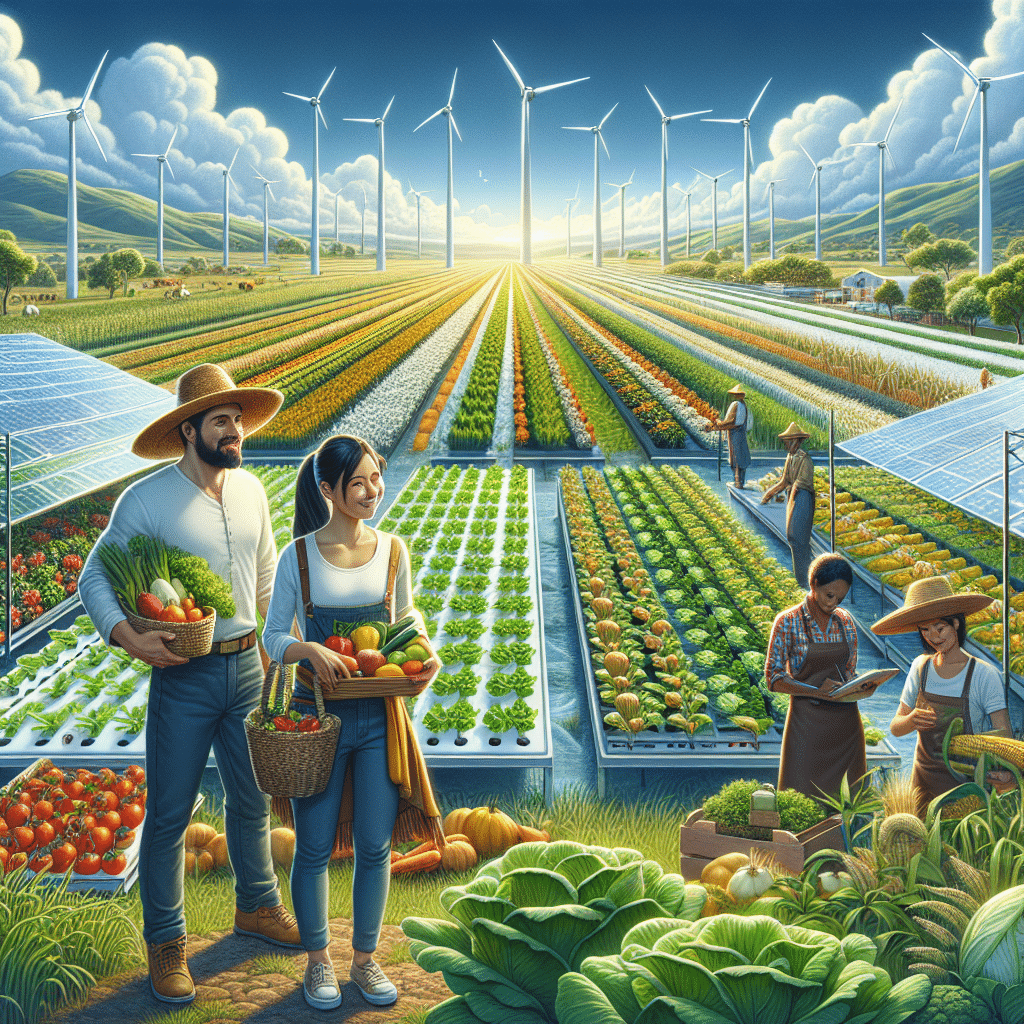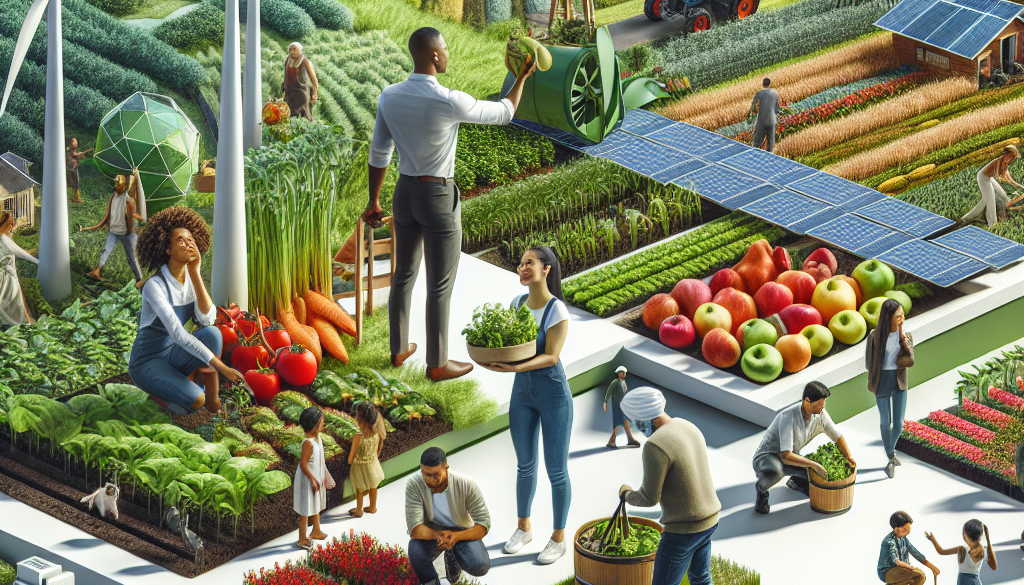Sustainable Food Supply: Building a Greener Future
-
Table of Contents
Sustainable Food Supply: Charting a Greener Future

The global population is projected to reach nearly 10 billion by 2050, and with this surge comes an increased demand for food. However, the current food supply chain is fraught with unsustainable practices that threaten the environment, economy, and social well-being. Building a sustainable food supply is not just a lofty goal; it’s an imperative for ensuring a greener and more secure future. This article delves into the strategies and innovations that are paving the way for a sustainable food system.
The Current State of Food Supply and Sustainability
Today’s food supply chain is characterized by high energy consumption, overuse of water resources, deforestation, and significant greenhouse gas emissions. Industrial agriculture, while efficient, often leads to soil degradation, biodiversity loss, and pollution due to the heavy use of synthetic fertilizers and pesticides. Moreover, food waste is a rampant issue, with approximately one-third of all food produced globally going to waste. These challenges underscore the need for a transformation towards sustainability.
Key Strategies for a Sustainable Food Supply
- Regenerative Agriculture: This approach goes beyond sustainable farming by actively improving the ecosystem. Practices such as crop rotation, agroforestry, and the use of natural fertilizers enhance soil health, increase biodiversity, and sequester carbon.
- Local and Seasonal Food Production: By consuming locally produced and seasonal foods, we can reduce the carbon footprint associated with transportation and storage, support local economies, and enjoy fresher, more nutritious produce.
- Plant-Based Diets: Shifting towards plant-based diets can significantly reduce the environmental impact of food production, as livestock farming is one of the largest contributors to greenhouse gas emissions and land use.
- Food Waste Reduction: Implementing better food storage techniques, improving supply chain efficiency, and educating consumers about food waste can dramatically decrease the amount of food that ends up in landfills.
- Technological Innovations: Advances in technology, such as precision agriculture, vertical farming, and biotechnology, can optimize resource use and increase crop yields without harming the environment.
Case Studies and Success Stories
Several initiatives around the world serve as beacons of hope for a sustainable food future. For instance, Denmark has become a leader in organic farming, with organic products accounting for a significant share of its food market. In Africa, the push for sustainable agriculture has led to the adoption of conservation farming techniques that improve yields while preserving the land. These examples demonstrate that with concerted effort and policy support, sustainable food supply systems are achievable.
Statistics and Research Findings
Research indicates that sustainable farming practices can yield up to 30% more food while using 45-50% less water and creating 50-60% less greenhouse gas emissions. Additionally, studies show that if food waste were a country, it would be the third-largest emitter of greenhouse gases after the US and China. These statistics highlight the potential impact of sustainable practices on global food security and climate change mitigation.
Conclusion: The Path Forward
Building a sustainable food supply is a multifaceted endeavor that requires the collaboration of governments, businesses, farmers, and consumers. By embracing regenerative agriculture, supporting local food systems, reducing waste, and leveraging technology, we can create a resilient and environmentally friendly food supply chain. The transition to a greener future is not only about survival but also about thriving as a global community committed to the health of our planet and its inhabitants.
ETChem: Pioneering Sustainable Protein Solutions
In line with the pursuit of a sustainable food supply, ETChem’s protein products offer an innovative solution. Their range of collagen products, derived from various sources, provides a sustainable alternative to traditional protein sources. ETChem’s commitment to quality and sustainability makes them an ideal partner for businesses looking to contribute to a greener future.
About ETChem:
ETChem, a reputable Chinese Collagen factory manufacturer and supplier, is renowned for producing, stocking, exporting, and delivering the highest quality collagens. They include marine collagen, fish collagen, bovine collagen, chicken collagen, type I collagen, type II collagen and type III collagen etc. Their offerings, characterized by a neutral taste, instant solubility attributes, cater to a diverse range of industries. They serve nutraceutical, pharmaceutical, cosmeceutical, veterinary, as well as food and beverage finished product distributors, traders, and manufacturers across Europe, USA, Canada, Australia, Thailand, Japan, Korea, Brazil, and Chile, among others.
ETChem specialization includes exporting and delivering tailor-made collagen powder and finished collagen nutritional supplements. Their extensive product range covers sectors like Food and Beverage, Sports Nutrition, Weight Management, Dietary Supplements, Health and Wellness Products, ensuring comprehensive solutions to meet all your protein needs.
As a trusted company by leading global food and beverage brands and Fortune 500 companies, ETChem reinforces China’s reputation in the global arena. For more information or to sample their products, please contact them and email karen(at)et-chem.com today.




